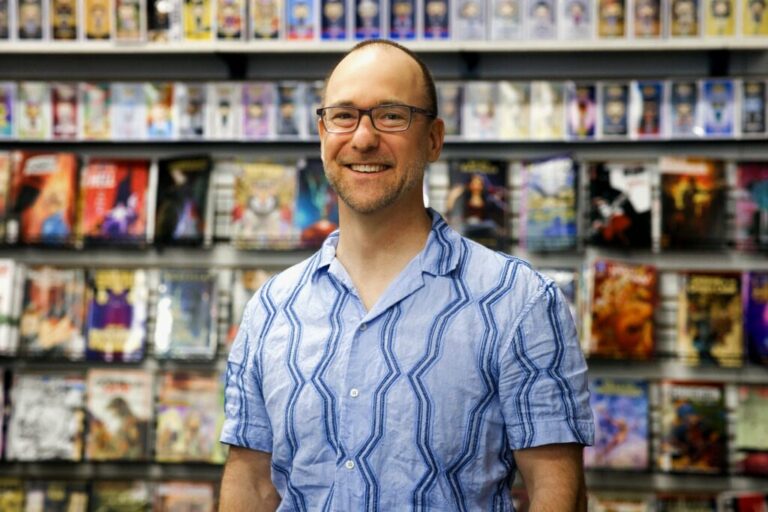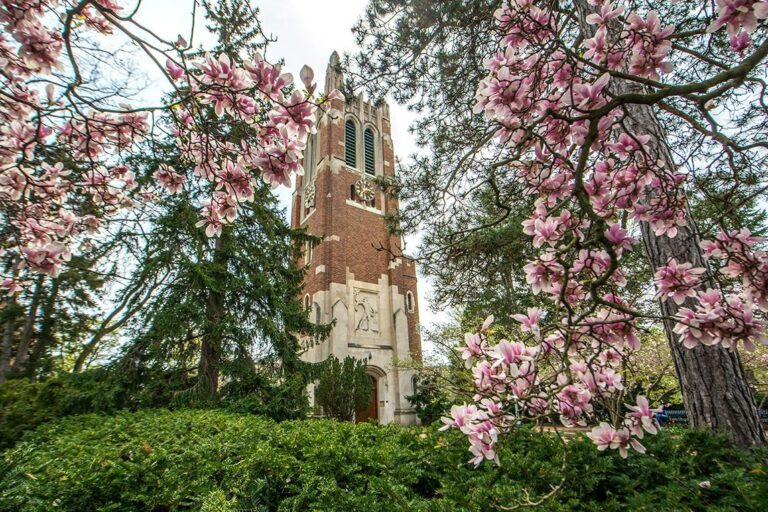The same size and blueprint as an ADX (administrative maximum) isolation cell, A Solitary Greenhouse, now on display in Michigan State University’s Beal Botanical Garden, is a fully functioning greenhouse designed to grow seedlings for future abolitionist gardens. It is the work of artist jackie sumell as part of her 2019-2020 artist residency in Critical Race Studies in MSU’s Department of Art, Art History, and Design (AAHD) and will be on display through the end of the fall 2021 semester.

The piece is modeled after the isolation cells at ADX Florence, an “inescapable federal supermax” prison located in Florence, Colorado, which is considered to be the most secure prison in the United States.
People incarcerated at ADX Florence are isolated 24 hours a day in 12-by-7-foot cells with thick concrete walls and double sets of sliding metal doors. The exterior door to each cell is solid, so the incarcerated have no human contact. More than 80% of the prison is buried underground, and both the incarcerated and prison workers are deprived of sunlight and natural circadian rhythms. Some cells have a single slot window about four inches wide that offers a glimpse of sky, but you cannot see the ground. The effect is disorienting.

“I hope people engage with the work and continue to build their compassion,” sumell said. “If they believe some folks deserve long-term solitary confinement, I hope they change their mind. If they believe solitary confinement is cruel and unusual, I hope they work harder to end it.”
sumell’s work draws inspiration from the patience, tutelage, and love of her elders Herman Wallace and Albert Woodfox who spent decades in solitary confinement. In line with this inspiration, sumell conceived the Solitary Greenhouse project as part of her commitment to abolitionist pedagogy, in which gardens produce the regenerative space necessary to imagine a world without prisons. The project makes transparent what has been buried by architects of humanity. It begs us to seek humane alternatives to our current system of criminal punishment.
I hope people engage with the work and continue to build their compassion. If they believe some folks deserve long-term solitary confinement, I hope they change their mind. If they believe solitary confinement is cruel and unusual, I hope they work harder to end it.
jackie summel
“From the gardens we learn profound lessons in patience, interdependence, care, and mutual aid. We learn to imagine different relationships and boundaries. Plants teach us to be better people,” sumell said. “The current criminal punishment system has failed humans and the planet. By committing to an abolitionist lens, lifestyle, and pedagogy, we fortify our commitment to defining justice on behalf of a more sustainable world for all. This work demands we look into all the systems we are complicit with and connected to in order to shift our cultural responses to crime.”

Due to COVID restrictions, sumell did not install A Solitary Greenhouse herself, but was still involved in the design process, through which she worked with engineers at 80/20 Engineering to transform her once-in-a-lifetime idea into a reality.
“Working with Walt Peebles and Mike McCune from AAHD has been so inspiring. They both are so generous with their time, skills, and ideas,” sumell said. “Honestly, I am 20-years deep in this work and have never had a better crew.”

Completed in collaboration with MSU’s Beal Botanical Garden, the plants that surround A Solitary Greenhouse were chosen in collaboration with the students of Professor Johanna Schuster-Craig’s Spring 2020 Global Studies in the Arts and Humanities course (GSAH 201), with the assistance of Beal Garden Curator Peter Carrington. Each plant is local and speaks to conflict, whether internal, local, or global, but also poses contemplative questions meant to inspire future solutions. Seed packets for these plants are available through MSU Broad’s Seeds of Resistance exhibition, which is on display until July 18, 2021.
“I loved my time at MSU,” sumell said. “It might sound cliche, but my highlights were the students, their curiosity, their wonder, their willingness. I still have friendships with some of the other professors as well, and that is meaningful.”


